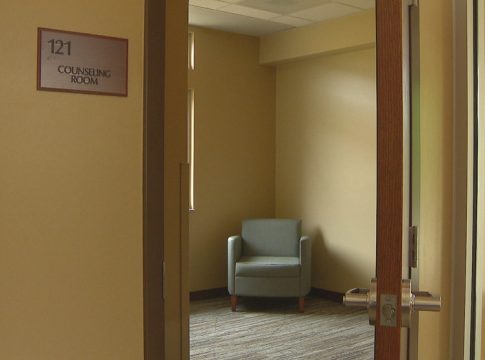New Program Aims to Address Mental Health Workforce Shortage in Wisconsin
A Growing Need for Support
In recent years, the demand for mental health services has surged, particularly in regions like Northeast Wisconsin. With increasing rates of anxiety and depression among young people—29% and 27% respectively between 2016 and 2020—it’s clear that more mental health professionals are needed urgently. Currently, in Brown County, there is only one mental health provider for every 380 individuals, a statistic that underlines an alarming gap in available care.
The Initiative: Bridging the Gap
To tackle this pressing issue, a transformative pilot program is being launched through a collaborative effort between Emplify Health by Bellin and Marquette University. Funded by a generous donation from The Richard J. Resch Foundation, this initiative aims to equip future counselors with the education, training, and resources necessary to effectively serve their communities.
This seven-year program will directly support 25 students from Northeast Wisconsin who are pursuing a master’s degree in clinical mental health counseling at Marquette University. Key features of the program include:
- Financial Assistance: Coverage for tuition, textbooks, and stipends, alleviating the burden of educational expenses.
- Hands-On Experience: Students will receive 3,000 hours of clinical training to build practical skills.
- Mentorship Opportunities: Personalized guidance from experienced professionals in the field.
- Employment Pathways: Graduates will have the chance to work at Emplify Health by Bellin, ensuring a smooth transition from education to practice.
As Kimberly Sandstrom, Clinical Supervisor at Emplify Health, eloquently points out, this gift is a valuable opportunity that addresses essential barriers to education and career entry in the mental health field.
The Impact on Mental Health Care
This initiative not only aims to bolster the number of qualified mental health professionals but also has the potential for significant economic benefits. Estimates suggest that addressing the workforce shortage could lead to annual savings exceeding $250 million.
In the face of staff burnout and increased demand for treatment, this program seeks to provide the necessary support for current and future counselors. With a projected shortage of about 500 mental health counselors in the region within the next three years, timely action is crucial.
A Call to Action
As we embark on this promising journey, it is essential to remember that mental health is a critical component of overall well-being. If you or someone you know requires support, reaching out for help is a proactive and courageous step. You can connect with trained counselors anytime by calling or texting 988.
The introduction of this program signifies hope—hope for those pursuing careers in mental health and, more importantly, hope for the countless individuals seeking care. Together, we can incrementally address the barriers and work towards a healthier, more supported community.

Covers wellness, nutrition, mental health, and daily life tips.
Bio: Talia brings a background in health journalism and holistic living to help readers live better, one tip at a time.

